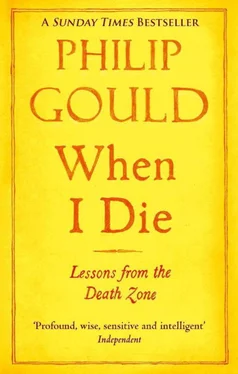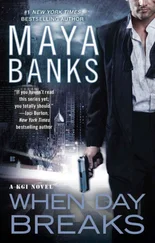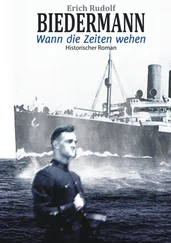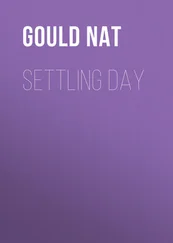And in the end, if New York offered the best chance of life, I felt almost morally obliged to go there. I felt at ease in America, having visited it many times, and having grown fond of it while working on Bill Clinton’s 1992 election campaign. I decided to be bold. We were going to New York. Gail was not so sure. She thought I was being stubborn. But she respected my decision.
The surgery was scheduled for 1 May, exactly eleven years after the general election victory of 1997. I considered this to be a good omen, but I was growing increasingly anxious. The date cast a shadow over the future, and every day it moved closer. My fear was less what would happen, more its inevitability. There would be no escape.
Spring gave way to early summer and it was time to leave for New York. Gail had to come out later so I flew there alone, then took a yellow cab through the city, something I had done many times before. I felt secure in the familiarity of the New York landscape and drew comfort from the fact that I still had a week to go, but deep down my anxiety was slowly growing.
This was New York, but it was not quite the New York I had always known. I was a patient, not a tourist. It was as if my vision had become blurred.
I checked into an apartment hotel on 64th Street. The staff were not welcoming but I had a small balcony overlooking the city and although I was alone, I was not lonely. I welcomed the privacy. Each day I got up and spent an hour or so in the gym, did my breathing exercises and walked in Central Park.
The kids had packed photos of the family which I put up, and given me a Zen Dog T-shirt to wear on the day of the surgery. It read:
He knows not where he’s going for the ocean will decide,
It’s not the destination it’s the glory of the ride.
Those words pretty much summed up my position.
In the coming days I had a CT scan and an endoscopy, which were both done to a high level of expertise and care.
I went to see Murray Brennan again. He was more approachable this time, if still a little brusque. He said he wanted to treat the surgery as a stomach cancer rather than an oesophageal cancer, and repeated that above all he wanted to avoid breaking into the chest. He only wanted to make entry through the stomach.
I talked to a nurse about what it was going to be like on the day. She said that I would just walk into the hospital on the morning of the operation, spend a couple of hours in a holding room with my wife and then walk alone down a long corridor to the vast operating theatre. It sounded like the last walk of a condemned man. She helpfully suggested I might like to take a tranquilliser before I started.
Gordon Brown phoned me in New York, asking how long the operation was likely to be. I said, ‘Six to eight hours,’ and he replied: ‘That will not be bad, that was the length of the operation on my eyes.’ I had never heard Gordon speak like that before or since. It was a moment of complete connection.
The day before the surgery I wrote letters to each member of my family in the unlikely but nonetheless possible event that I did not make it through. I completely broke down doing this. It was agony.
Gail arrived that afternoon. She was, and is, CEO of the publishers Random House, and was under huge strain at work. It was incredible that she was now to stay with me in New York for two months, working in her company’s New York office. I did not think I deserved that.
She busied herself making the flat into a kind of makeshift home and we talked continually. It was a night of unimaginable closeness. Cancer is the cause of so much distress but it is also the source of great intimacy. Never will I forget that time.
On the day of the operation I woke hollow with anxiety, but also with an edge of excitement. I put on my T-shirt and we left ridiculously early, walking to the hospital, inevitably getting lost and gently rowing about it. We took the elevator and made our way to the holding room. Murray arrived wearing a bright red bandana. He gripped me in a bear hug. ‘Now it’s up to me to save you,’ he said, and in that moment I felt his power and his warmth.
Another hour and a half went past and it was time.
I walked with Gail for twenty yards or so and then she fell away and I was on my own. I entered the operating theatre, which was vast and glittering, with video screens hanging from the ceiling, and in the middle a small bed, utterly dwarfed by the epic scale of the stage. Murray ignored me, scrubbing up in the corner. I climbed on to the bed, and the anaesthetist put me out of my misery.
Above me I saw a bright and shining light and I knew I was alive.
I gulped in the elation. I was alive and just felt immense relief. Gail came in and I talked to her and called the kids. Grace was worried. Georgia was happy. I did not sleep at all that night, watching television on a high of adrenalin.
I cannot remember ever feeling quite so happy. But this happiness was an illusion produced in part by steroids. In the morning I moved to my permanent home within the hospital, a small, sparse, stark room which I was to share with a volatile New Yorker who rarely stopped talking. There was no window. It was, of course, fine but a room designed for utility not satisfaction.
Gail described to me what the day had been like for her: hell. Waiting with no information until finally Murray Brennan appeared, his white coat stained with blood, looking exhausted, as though he had been battling a whale. He said the operation had been incredibly tough, and that he had battled to avoid breaking through my ribs. He had struggled to rejoin the two ends of the oesophagus from which the tumour had been cut out.
Murray wrote at the time: ‘We performed an oesophago-gastrectomy on Lord Gould today. We were able to do it from the abdomen, but it was a high anastomosis so we need to follow him closely.’ It was clearly a tough op, for him as well as me.
I settled into my new room and started to fade. I had tubes everywhere, including one in my nose. My face drained of colour and I went a dreadful shade of white. Gail said I looked more dead than alive. She hated it there, the room, the thin curtain that separated me from my room-mate, my appalling appearance, the strangeness of it all. For several days I could not drink, only suck on cotton-tipped sticks dipped in water.
Then there was the problem of language and communication. Because of the dryness of my mouth and the tube in my nose, I could barely talk and much of what I did manage to say was unintelligible. Most of the nurses could not understand what I was talking about and clearly suspected that I was being inhospitable. By contrast, all the New Yorker had to do was grunt and he seemed to be immediately understood.
The day was bad but the night was worse, the morphine turning the hours into a terrible, ever-moving nightmare of fears and dark forces. During this period my room never seemed to be still – it was always moving, shifting, contorting and somewhat threatening me. This was what the nights became: endless New York banter and a moving inchoate darkness.
The next day my spirits slipped further. I woke up feeling bereft of energy and the pain of the operation was starting to wear me down. I felt that the only way to cope was to retreat and conserve whatever energy I had.
In my head I called this – rather absurdly – the lizard strategy. Hunker down, hide, retreat. It did not work. It sent a signal to my surgeon and the nurses that I lacked the firepower to see the process through, and by sending out no energy it meant that less came back to me.
Murray became convinced that my low mood was the consequence of a leak – a failure of the surgery to join the various parts perfectly – and immediately ordered a CT scan. This involved my drinking a contrast liquid, which was no fun at all, and holding a position during the scan that was, so soon after the surgery, even worse. There was no leak but I learnt my lesson. I work best when I am positive, and when I am not things get worse rather than better. From that moment on my recovery accelerated and confidence in me improved. I was on the way up.
Читать дальше












